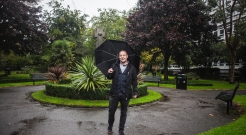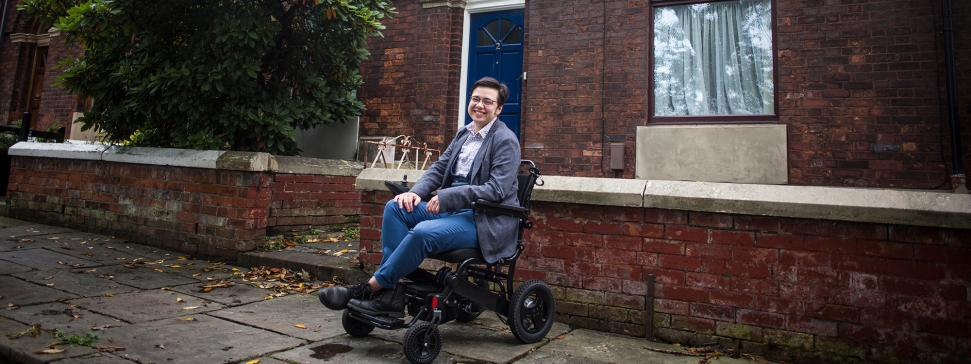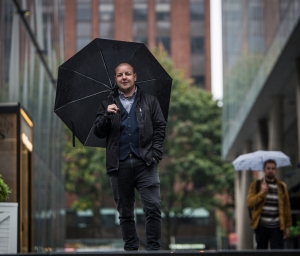 Welcome to Voice and Communication Therapy at Indigo Gender Service
Welcome to Voice and Communication Therapy at Indigo Gender Service
We are a team of Speech and Language Therapists working with trans and non-binary people to explore your authentic voice. We look forward to working with you!
Our specialist Speech and Language Therapy team will guide you as you make changes in a way that does not put your voice at risk. They can offer advice, voice assessment and specialist intervention to achieve and maintain a voice that matches your authentic self.
The Speech and Language Therapists (SLTs) are members of the Royal College of Speech and Language Therapists (RCSLT) and registered with the Health and Care Professions Council (HCPC). Our specialist SLTs are also members of the RCSLT Trans and Gender-Diverse Clinical Excellence Network.
What is Voice and Communication Therapy?
Voice and Communication Therapy is a form of specialist speech and language therapy. Our therapists support you to achieve your authentic voice – a voice that aligns with you!
Voice and communication therapy is a range of breathing and vocal techniques. The therapy doesn’t involve surgery or any invasive procedures. Exercises are designed to enhance how you use your voice.
The team will help you find a voice and communication style that is uniquely your own.
Is Voice and Communication Therapy for me?
Accessing Voice and Communication Therapy is your choice, it’s not something that you must do.
- If you don’t want to change your voice, then you don’t need to access Voice and Communication Therapy. It’s important to recognise that you don’t need to change your voice to suit other people or to fit in with ideas of how people should sound.
- If your voice causes you to feel uncomfortable or dysphoric, or you would just like to explore aspects of your voice, then Voice and Communication Therapy might be for you.
- If you would like Voice and Communication Therapy in the future but need other support, you might like to ask for a referral at a later date. We understand that you might have lots of appointments with Indigo. To get the most from Voice and Communication Therapy you should attend when you can commit to all the appointments and home practice.
How is our therapy delivered?
Voice and Communication Therapy is delivered by a series of one-to-one appointments. We are flexible in our approach and want to remove as many barriers as we can to enable you to access our support, and so we offer both online and face-to-face appointments.
The location and number of appointments will be discussed between you and your therapist in your first session.
During appointments, we can explore any of the following areas:
- Pitch - how high or low your voice is
- Intonation – the tune of a spoken sentence
- Resonance – vibrations mainly in the head or chest that add authenticity
- Volume - loudness when speaking or projecting the voice
- Articulation – how speech sounds are made
- Language use - style of spoken language
- Body language and facial expressions - the parts of your communication outside of voice and speech
The aspects of voice and communication you choose to change are up to you. The team will provide you with home practice to firmly establish these techniques.

Please note, you'll need to practise regularly, preferably with a supportive conversation partner, in order to develop and maintain the changes to your voice and communication.
How do I access Voice and Communication Therapy?
I am already a service user being seen by Indigo Gender Service:
You can request to be referred to Voice and Communication Therapy after you have received a diagnosis of Gender Incongruence by the team. Please note that there is currently a waiting list to access Voice and Communication Therapy.
I am not an Indigo Service User:
It is important to ensure you are following safe techniques when undergoing voice therapy. There is a lot of information on the internet from non-certified YouTube videos or forums which detail unsafe techniques and can lead to permanent damage to the voice.
The VCT team would always recommend being seen by a specialist speech and language therapist to ensure correct voice evaluation prior to therapy has been undertaken and the correct advice and techniques are followed. Most people will achieve better outcomes with the support of a speech and language therapist.
Access to Speech and Language Therapy through a Gender Identity Clinic (GIC) can be requested alone. Therefore, if you are a trans or non-binary person you could ask for a referral to a GIC for just VCT and nothing else. This would ensure free access to specialist voice and communication therapy. We would therefore strongly recommend this route.
However, we recognise there are long wait lists and not everybody feels they can wait to be seen by a Voice and Communication Therapy Team. This information has been provided as signposting only. We cannot recommend any clinical advice if you have not been seen for an evaluation of your voice.
Please note that vocal misuse, and exploring voice exercises on a voice that is damaged, can lead to permanent long-term damage to your voice.
-
‘The Voice Book for Trans and Non-Binary People: A Practical Guide to Creating and Sustaining Authentic Voice and Communication’ by Matthew Mills and Gill Stoneham (2017). This is a practical guide designed for people wanting to use their authentic voice. With the purchase of this book, you will also gain access to videos led by clinicians. You may find this guide supportive as you work with your Speech and Language Therapist.
-
Videos about Voice and Communication Therapy from Dr Sean Pert (He/Him), a Consultant Speech and Language Therapist, can be found here.
-
You can also access an independent speech and language therapist. We do understand that this is dependent on personal funds to access independent therapy, which is not always possible for everybody. We would strongly recommend a referral to speech and language therapists through a GIC, which would be free at the point of access for service users. Indigo Voice and Communication Therapy team has no affiliation with independent speech and language therapists and cannot provide any recommendations or take responsibility for a person accessing independent Speech and Language Therapy. This link provides details for independent Speech and Language Therapists. https://asltip.com/find-a-speech-therapist/
-
You can request your GP to refer you to your local NHS adult speech and language therapy voice service. It’s worth noting that referrals are not always successful through this route.
I think I have a voice disorder, can I still access Voice and Communication Therapy?
If you experience problems with your voice, which could include, but is not limited to hoarseness, roughness, strain, and pain using your voice, you must speak to your GP. Your GP may recommend a referral to Ear, Nose and Throat (ENT) services. In this case, Speech and Language Therapists cannot start voice therapy until the ENT specialist has checked that your voice is ready.

















![Our Services - Services we offer - Care navigation [HEADER + THUMBNAIL IMAGE].jpg](/application/files/thumbnails/box_link/9416/0649/3877/Our_Services_-_Services_we_offer_-_Care_navigation_HEADER___THUMBNAIL_IMAGE.jpg)
![Our Services - Services we offer - Hormones [HEADER + THUMBNAIL].jpg](/application/files/thumbnails/box_link/6016/0649/4175/Our_Services_-_Services_we_offer_-_Hormones_HEADER___THUMBNAIL.jpg)
![Our Services - Services we offer - Talking Therapies [HEADER + THUMBNAIL IMAGE].jpg](/application/files/thumbnails/box_link/8916/0649/2255/Our_Services_-_Services_we_offer_-_Talking_Therapies_HEADER___THUMBNAIL_IMAGE.jpg)


![Our Services - Services we offer - Additional services[HEADER + THUMBNAIL].jpg](/application/files/thumbnails/box_link/7016/0649/1561/Our_Services_-_Services_we_offer_-_Additional_servicesHEADER___THUMBNAIL.jpg)
